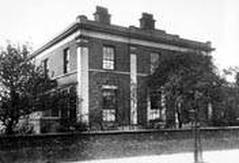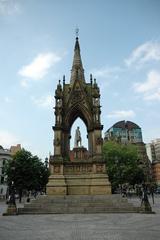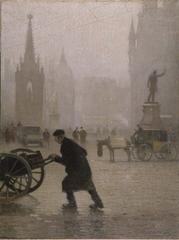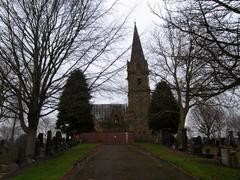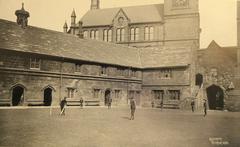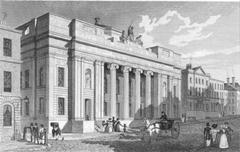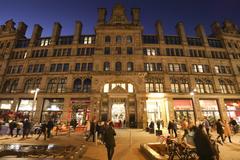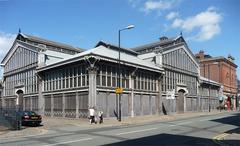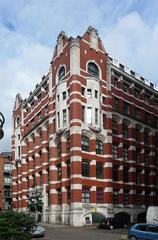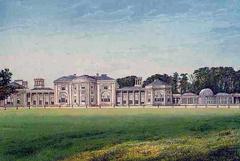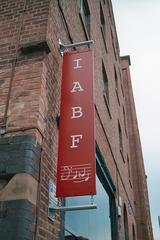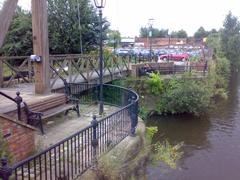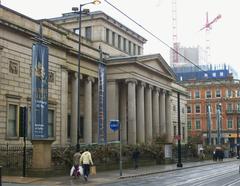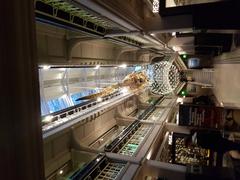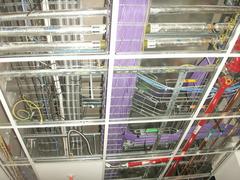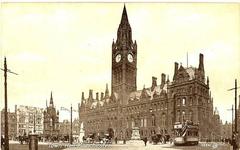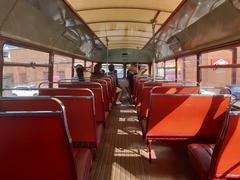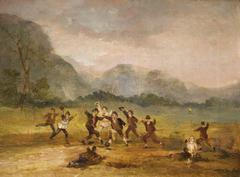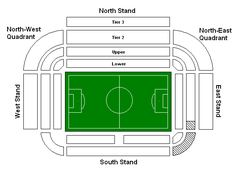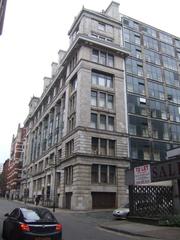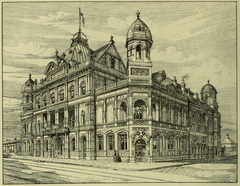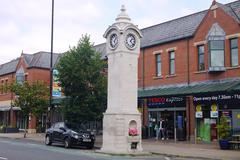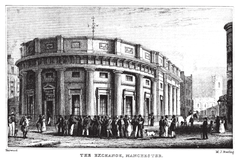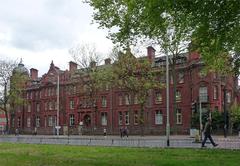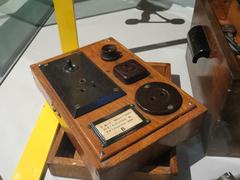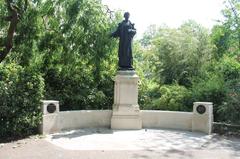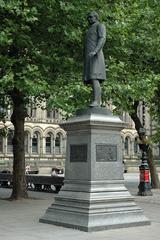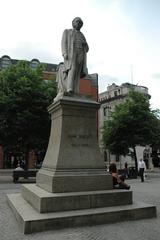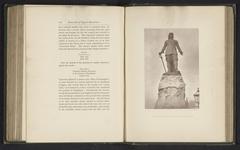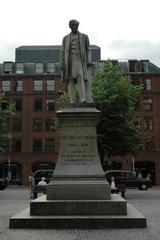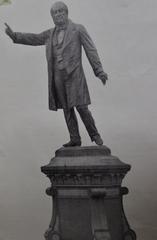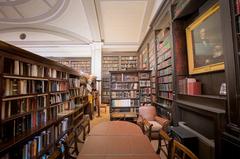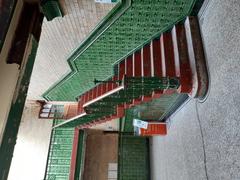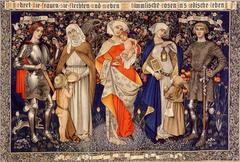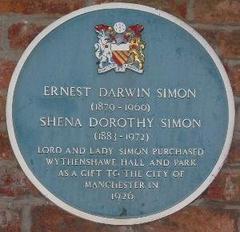
Albert Hall Manchester: Visiting Hours, Tickets, and Historical Sites Guide
Date: 04/07/2025
Introduction
Albert Hall Manchester is a celebrated landmark that encapsulates the city’s rich Victorian heritage and dynamic contemporary culture. Originally opened in 1910 as the Wesleyan Central Hall, the building is a Grade II listed masterpiece designed by William James Morley. Its grand terracotta façade, ornate plasterwork, and horseshoe-shaped balcony have made it an architectural jewel and a vibrant cultural venue. Today, Albert Hall thrives as a premier destination for live music, club nights, and unique events, attracting locals and tourists alike. This comprehensive guide explores everything you need to know about visiting Albert Hall Manchester—including history, architecture, ticketing, accessibility, and nearby attractions—ensuring a rewarding and seamless experience (Albert Hall Manchester official website; Creative Tourist; Trof Group).
Table of Contents
- Introduction
- Historical Origins and Architectural Highlights
- Transformation and Adaptive Reuse
- Visiting Hours and Tickets
- Accessibility and Visitor Information
- Nearby Attractions
- Notable Events and Programming
- Architectural Significance in Manchester
- Preservation and Heritage Status
- Visitor Tips
- Frequently Asked Questions (FAQ)
- Plan Your Visit
- Digital Engagement & Visual Resources
- Conclusion
- References
Historical Origins and Architectural Highlights
Albert Hall was constructed in 1910 as part of the Methodist Forward Movement, envisioned as a spiritual and social hub for Manchester’s urban community (Albert Hall, Manchester – Wikipedia). Architect William James Morley combined Baroque and Gothic Revival elements, resulting in a visually striking structure. The red brick and terracotta exterior, punctuated by large arched windows, reflects both grandeur and openness.
Inside, the highlight is the Chapel Hall, featuring a unique horseshoe-shaped gallery and a sloped floor that enhances acoustics and intimacy. Intricate floral plasterwork, stained glass, and colored glass rooflights—emblematic of the Arts and Crafts movement—add to the venue’s charm. These features have been thoughtfully preserved during various restoration efforts, retaining the hall’s original character while supporting modern event requirements (Visit Manchester; Albert Hall official site).
Transformation and Adaptive Reuse
Following its original role as a Methodist central hall, Albert Hall underwent several transformations reflecting Manchester’s social and cultural evolution. The ground floors became a car showroom and later a nightclub (Brannigans), while the Chapel Hall remained unused for decades. A major restoration by the Trof Group in 2012–2014 revitalized the venue, preserving its architectural features and adapting the space for concerts, club nights, and special events (Albert Hall official site; Concert Archives).
The restoration balanced heritage conservation with modern requirements, including new lighting, sound systems, accessibility upgrades, and flexible seating arrangements. This adaptive reuse is a model for blending historic preservation with contemporary use.
Visiting Hours and Tickets
Albert Hall operates primarily as an event-driven venue, with doors typically opening an hour before performance start times. Visiting hours vary according to the event schedule, so it is essential to check the official website or gig guide for up-to-date listings.
- Typical Hours: 6:00 PM to midnight on event days.
- Tickets: Purchase online via the official site, at authorized ticket outlets, or occasionally at the box office (subject to availability). Prices generally range from £10–£30, with VIP packages and group discounts available for select events.
- Membership: The Club 52 program offers early ticket access and exclusive deals (Club 52).
Accessibility and Visitor Information
Albert Hall offers step-free access, lifts to all floors, accessible restrooms, and designated wheelchair spaces, ensuring inclusivity for all guests. Hearing assistance devices are available upon request. For detailed information on accessibility for specific events, consult the venue info page.
Location:
17 Peter Street, Manchester, M2 5QR
Transport:
- Nearest train stations: Manchester Oxford Road, Piccadilly, and Victoria.
- Tram stops: St Peter’s Square and Deansgate-Castlefield.
- Several bus routes serve the area.
- Limited street parking and nearby public car parks are available, but public transport is recommended.
Nearby Attractions
Located in the heart of Manchester, Albert Hall is within walking distance of several key attractions:
- John Rylands Library: A neo-Gothic masterpiece with literary treasures.
- Manchester Town Hall: Iconic Victorian Gothic architecture (World City Trail).
- Northern Quarter: Known for independent shops, cafes, and vibrant street art.
- Albert’s Schloss and NQ64: Popular nightlife and dining spots on Peter Street.
These sites make Albert Hall an ideal anchor for a day of cultural exploration.
Notable Events and Programming
Albert Hall is renowned for its eclectic event schedule, hosting everything from international concerts to club nights and immersive multimedia experiences. Highlights for 2025 include:
- Paris Paloma: Cacophony Tour: Emotionally powerful contemporary music.
- The Brian Jonestown Massacre: Acclaimed psychedelic rock.
- La Discothèque (March 8, 2025): Legendary disco club night with immersive production.
- Sharon Van Etten & The Attachment Theory (March 11, 2025): Critically acclaimed singer-songwriter performance.
The venue also features themed events, film screenings, and collaborations with local artists, supporting Manchester’s thriving creative scene (Concerts50; Creative Tourist).
Architectural Significance in Manchester
Albert Hall’s blend of Baroque and Gothic Revival architecture distinguishes it among Manchester’s historic venues. While the city is known for Victorian Gothic icons like the Town Hall, Albert Hall’s early 20th-century eclecticism offers a unique perspective on Manchester’s civic ambition and religious heritage. Its adaptive reuse has inspired the preservation and transformation of other historic sites, reinforcing Manchester’s identity as a city that values both innovation and tradition (Visit Manchester).
Preservation and Heritage Status
Albert Hall is protected as a Grade II listed building, ensuring that any alterations respect its architectural and historical significance. Restoration efforts have successfully balanced the need for modernization with the preservation of iconic features such as the terracotta façade, horseshoe gallery, and stained-glass windows. This status affirms Albert Hall’s importance not just as a venue, but as a living testament to Manchester’s cultural legacy (Albert Hall, Manchester – Wikipedia).
Visitor Tips
- Arrive Early: Take time to explore the gallery and main hall before events.
- Photography: The interplay of natural and colored light offers excellent photo opportunities—especially during daylight.
- Guided Tours: Check for heritage open days or special tours to gain deeper insight into the building’s history and architecture.
- Accessibility: Review the venue info for the latest on accessible entrances and facilities.
- Combine Your Visit: Pair your visit to Albert Hall with trips to nearby cultural attractions for a full Manchester experience.
Frequently Asked Questions (FAQ)
What are Albert Hall Manchester’s opening hours?
Visiting hours vary by event. Doors generally open one hour before performances. Check the official schedule.
How do I purchase tickets?
Tickets are available via the Albert Hall website and authorized sellers. Early booking is advised.
Is the venue accessible?
Yes, with step-free access, lifts, accessible restrooms, and hearing assistance. Contact the venue for event-specific information.
Are there guided tours?
Occasionally, during special events or by arrangement. Details are posted on the official website.
What are the age restrictions?
Most concerts are 14+; some club nights are 18+. Check event listings for details.
Plan Your Visit
- Consult the official website for current event listings and ticket availability.
- Consider joining Club 52 for exclusive benefits (Club 52).
- Explore nearby attractions before or after your event.
- Use public transport for convenience.
Digital Engagement & Visual Resources
- Follow Albert Hall on Instagram, Facebook, and X for updates, exclusive content, and ticket releases.
- Subscribe to the Albert Hall newsletter for event recommendations and offers.
- Download the Audiala app for personalized event updates and seamless ticket management.
- Explore virtual tours and photo galleries on the official site, with images such as “Albert Hall Manchester interior stained glass windows” and “La Discothèque club night at Albert Hall.”
Conclusion
Albert Hall Manchester is more than a concert venue—it is a symbol of the city’s enduring spirit, creative energy, and architectural heritage. From its origins as a Wesleyan central hall to its role as a leading live music and cultural destination, Albert Hall offers a unique blend of history, artistry, and community. Whether you’re attending a headline concert, discovering Manchester’s architectural gems, or seeking an unforgettable night out, Albert Hall stands as a testament to the city’s vibrant past and exciting future. Plan your visit today and experience one of Manchester’s most iconic venues.
References
- Albert Hall Manchester official website
- Trof Group
- Creative Tourist
- Visit Manchester
- Concert Archives
- Albert Hall Manchester Gig Guide
- Albert Hall, Manchester – Wikipedia
- World City Trail – Manchester Town Hall
- Concerts50
- I Love Manchester
- Albert Hall Club 52
- Albert Hall Venue Info
- Albert Hall Merch
- Albert Hall Socials



